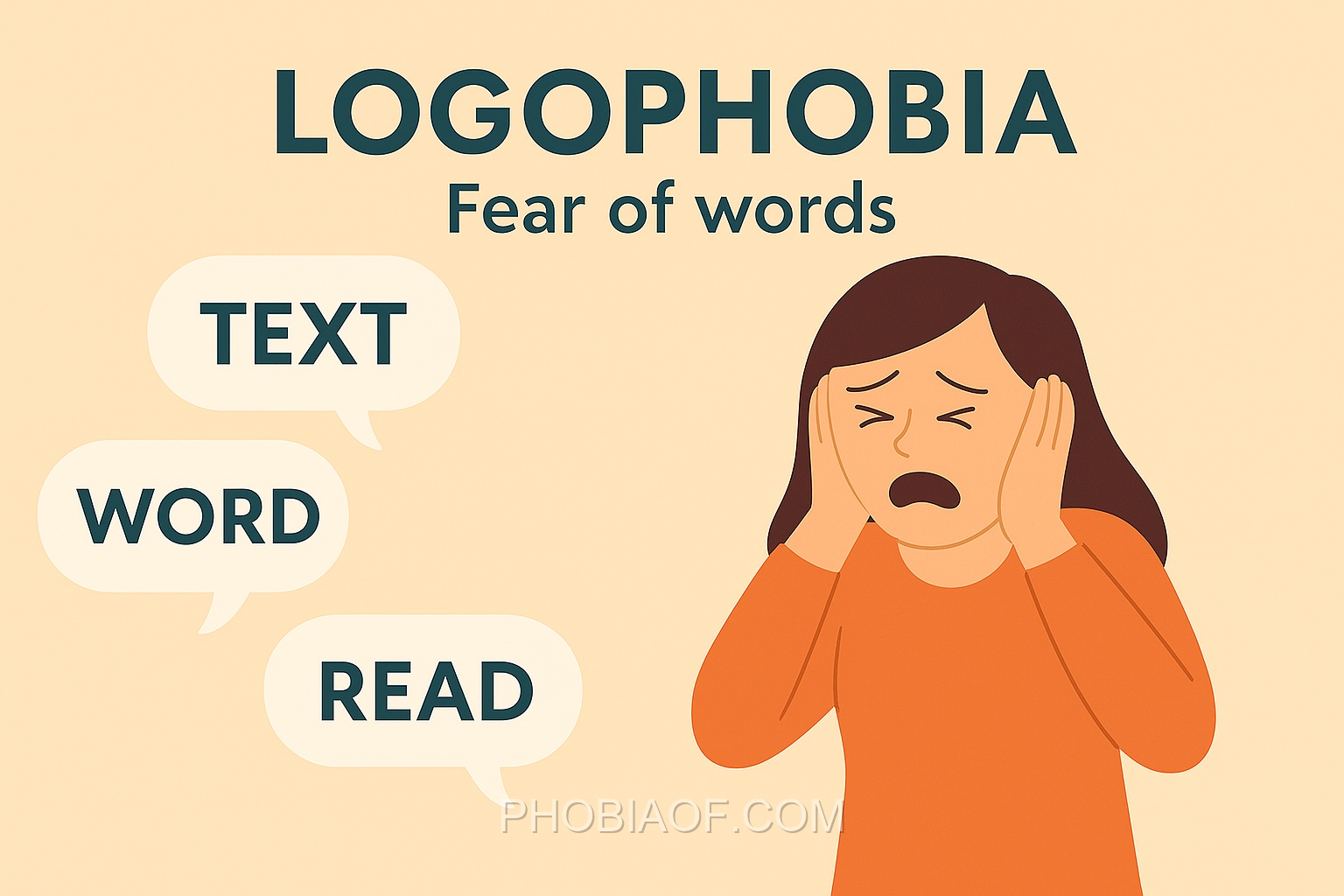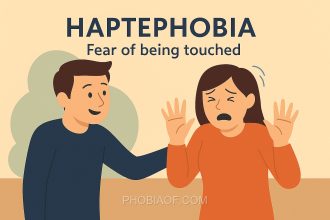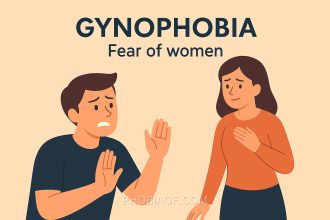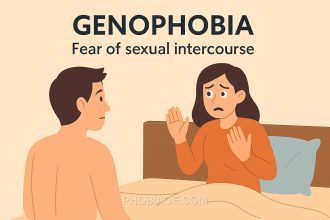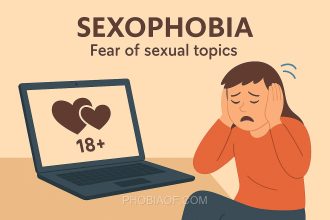Have you ever stumbled over a word while speaking and felt a rush of anxiety? For some, this fear extends beyond mere embarrassment and becomes a deep-seated dread of words themselves. This condition is known as Logophobia, a term derived from the Greek words “logos” meaning “word” and “phobia” meaning “fear”.
Logophobia is the fear of words, which might sound unusual given that words are such a fundamental part of our everyday lives. However, for those who experience this phobia, the fear of words can be overwhelming and disruptive. It can manifest in various ways, such as extreme anxiety when reading out loud, writing, or even speaking.
People with Logophobia may avoid situations where they have to interact with words, which can significantly impact their daily lives, from avoiding social interactions to facing challenges in educational or professional settings. This fear can lead to feelings of isolation and low self-esteem, as the affected individuals might feel misunderstood or embarrassed by their condition.
Understanding logophobia is crucial for providing support and helping those affected find coping strategies. With compassion and the right approach, individuals can learn to manage their fears and regain confidence in their communication abilities.
Causes of Logophobia
Logophobia, or the fear of words, can be a perplexing and distressing condition. Understanding its origins is key to addressing and managing this fear. Several factors may contribute to the development of logophobia, and these can vary from person to person.
- Genetic Predisposition:
Just like many other phobias, logophobia may have a genetic component. Individuals with a family history of anxiety disorders might be more susceptible to developing fears, including the fear of words.
- Traumatic Experiences:
Past traumatic events involving language or communication can trigger logophobia. For instance, a negative experience during a public speaking event or being harshly criticized for language use might instill a fear of words.
- Learned Behavior:
Phobias can be learned by observing others. If a child grows up around individuals who express fear or anxiety related to language, they might adopt these attitudes and behaviors themselves.
- Psychological Factors:
Underlying psychological issues such as low self-esteem or social anxiety can contribute to the fear of words. A person who doubts their ability to use language effectively may develop logophobia as a protective mechanism.
- Environmental Influences:
The environment in which one is raised can also play a role. High-pressure academic settings or environments that emphasize strict language rules might foster anxiety around words and language.
While these factors can provide insight into the causes of logophobia, it is important to remember that each person’s experience is unique. Further research continues to explore the complexities of phobias, aiming to provide a deeper understanding of their origins and how best to address them.
Symptoms of Logophobia
Logophobia, the intense fear or anxiety associated with words, can manifest in various ways. Individuals experiencing this phobia may feel an overwhelming sense of dread when confronted with reading, writing, or speaking. Below are common symptoms that may help you recognize this phobia, either in yourself or someone you care about:
- Intense Fear or Anxiety: A profound and persistent fear when faced with situations involving words, such as reading aloud or writing.
- Panic Attacks: Sudden episodes of intense fear that trigger physical reactions like chest pain, trembling, or dizziness.
- Sweating: Excessive sweating in situations where one is pressured to read, write, or speak.
- Rapid Heartbeat: An accelerated heart rate triggered by exposure to words or the anticipation of reading or writing.
- Avoidance of Triggers: Deliberate avoidance of situations where words are involved, such as public speaking or even casual reading.
- Overwhelming Dread: An all-consuming feeling of dread or apprehension when thinking about engaging with words.
- Nervousness: Persistent nervousness or agitation when confronted with tasks like reading a book or writing an essay.
- Negative Self-Talk: Self-critical thoughts and beliefs about one’s inability to handle words effectively.
When severe, these symptoms can significantly interfere with daily life, affecting personal relationships, educational pursuits, and professional opportunities.
Treatment for Fear of Words
Logophobia, the fear of words, can be daunting, but it’s important to know that it can be treated and managed over time. If you or someone you know struggles with this phobia, there are several effective treatment options and coping strategies available. Let’s explore these options together with the hope and encouragement that overcoming this fear is possible.
Therapy Options
- Exposure Therapy: This involves gradually exposing the individual to words in a controlled and systematic way. By facing the fear head-on in incremental steps, the anxiety surrounding words can decrease over time.
- Cognitive-Behavioral Therapy (CBT): CBT helps in changing the fearful thoughts associated with words. By identifying and challenging negative thought patterns, individuals can learn to respond to words more positively.
- Counseling: Speaking with a counselor can provide support and guidance in managing the fear of words. Counselors can offer personalized strategies and emotional support to help individuals cope with their phobia.
Self-Help Coping Techniques
- Relaxation Exercises: Techniques such as deep breathing or progressive muscle relaxation can help reduce anxiety symptoms when confronted with words.
- Meditation: Practicing mindfulness meditation can help individuals stay grounded and calm, reducing the overall level of anxiety.
- Support Groups: Joining a support group can provide a sense of community and understanding. Sharing experiences with others who have similar fears can be incredibly reassuring and empowering.
Medication
In severe cases, medication such as anti-anxiety medications might be prescribed. However, the focus should primarily be on therapy and developing coping skills. Medication can be used as a complementary approach under the guidance of a healthcare professional.
Remember, overcoming logophobia is a journey, and seeking professional help is a positive and courageous step if the phobia is interfering with your daily life. You’re not alone in this, and with the right support and strategies, it is possible to manage and overcome the fear of words.
Conclusion
Understanding the causes and symptoms of logophobia can be an empowering first step toward addressing this often debilitating fear. Recognizing the ways in which logophobia manifests allows individuals to better understand their experiences and seek appropriate strategies for coping and overcoming the phobia.
It is important to remember that many people successfully manage or even overcome their phobias over time, particularly with the right support and interventions. If you or someone you know struggles with logophobia, consider reaching out to a mental health professional or a doctor for guidance. Therapy and other supportive measures can provide invaluable tools and support on the journey toward managing this fear.
Take heart in knowing that progress is possible, and you are not alone in this journey. With patience, understanding, and proper help, managing or overcoming logophobia is within reach. Don’t hesitate to take that first step and seek the support you deserve.
